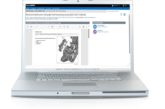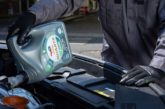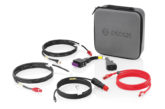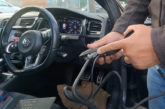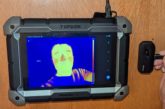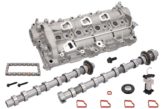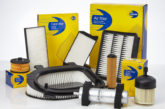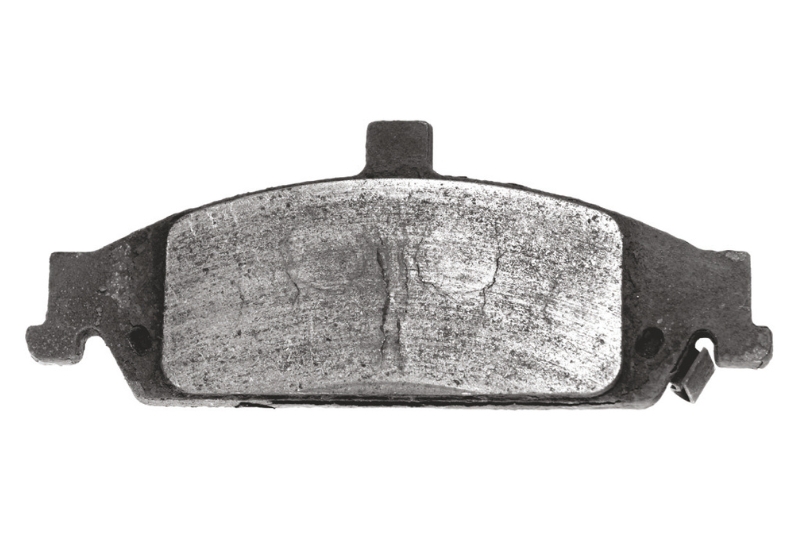
Bosch supplies readers of PMM with an in-depth view of what issues arise with brake pads and discs.
As a strong partner with extensive expertise in brakes, we offer your workshop everything you need for the efficient maintenance and repair of brake systems first-class products, reliable service offerings and efficient diagnostic technology.
Pads
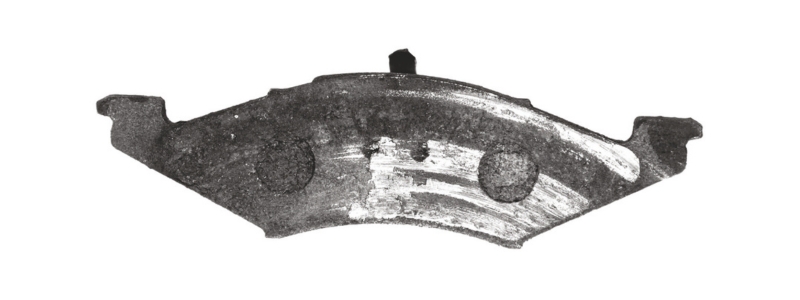
Wear on one side only
Cause
- Brake caliper and/or brake caliper piston is blocked
- Guiding of the caliper does not work properly
Effect
- Vehicle pulls to one side during braking
- Faster and/or uneven brake pad wear
Recommendation
- Check the brake caliper and replace if necessary
- Replace the brake pads
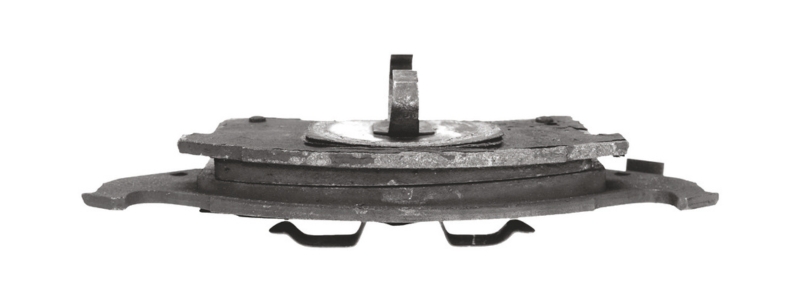
Conical wear – vertical or horizontal
Cause
- Worn brake caliper seals and/or spring
- Excessive operating clearance of the caliper
Effect
- Premature brake pad wear
- Braking noise
Recommendation
- Check the brake caliper and replace if necessary
- Replace the brake pads
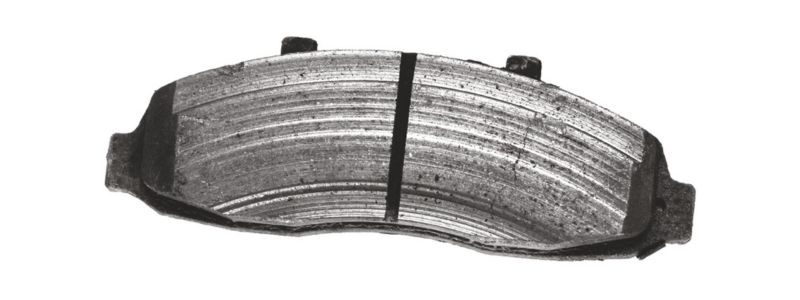
Grooves and scoring in the friction material
Cause
- Dust or metal particles on the contact surface of the brake pad or brake disc
- Scratches on the surface of the brake disc
Effect
- Braking noise
- Vibration during braking
- Affected braking efficiency
Recommendation
- Check the brake disc and replace if necessary
- Replace the brake pads

Cracks or broken edges in the friction material
Cause
- Extreme heat buildup due to constant contact between the brake pad and brake disc
- Bending of the brake pad backing plate
- Brake caliper or brake caliper piston is blocked
Effect
- Braking noise
- Vehicle pulls to one side during braking
- Overheating on one wheel
- Uneven brake pad wear
Recommendation
- Check the brake caliper and replace if necessary
- Replace the brake pads
Discs
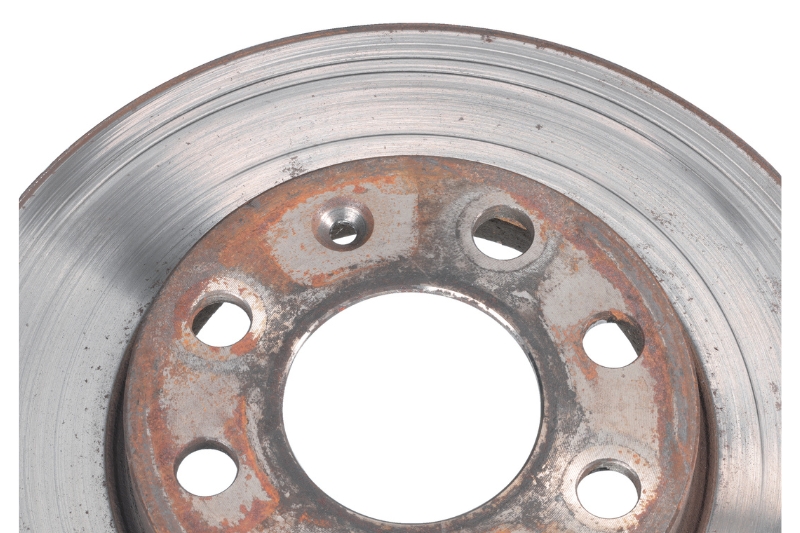
Scoring or grooves on the friction surface
Cause
- Dirt particles on brake disc and pad
Effect
- Brake noise
- Rubbing effect during braking
- Reduced braking performance
Recommendation
- When changing the brake discs, always change the brake pads as well
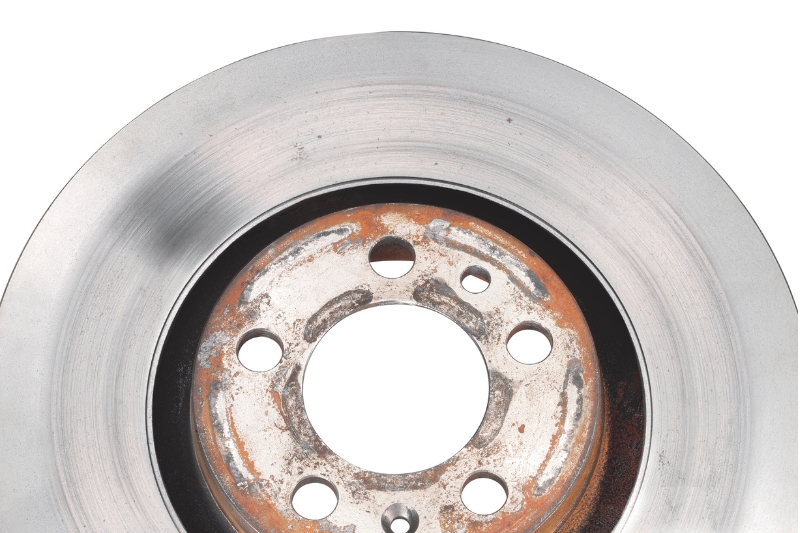
Uneven wear
Cause
- Uneven function of the brake caliper
- Run-out of the brake disc
Effect
- Poor and/or irregular braking performance
- Vibration in the steering wheel
- Pulsing effect in the brake pedal
Recommendation
- Check the brake caliper and wheel hub when installing new brake discs
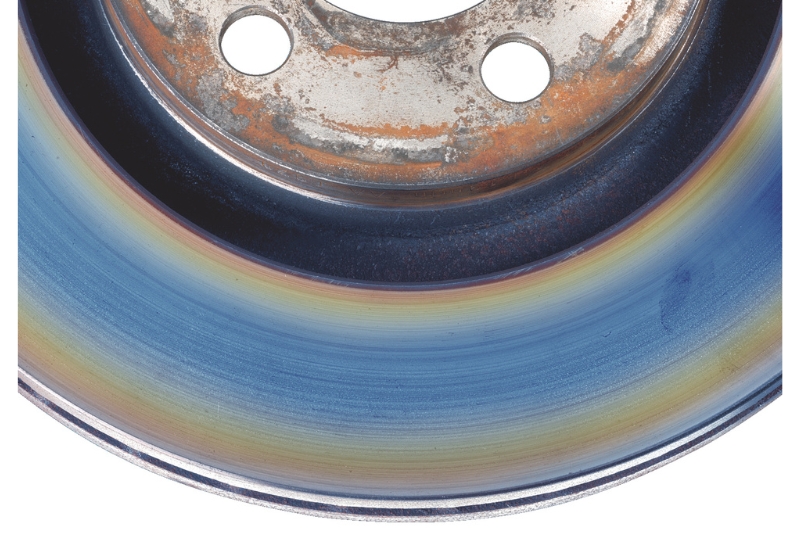
Blue surface discolouration
Cause
- Overheating due to jammed or seized brake pads
- Vehicle driven with activated or seized parking brake
- Brake caliper piston is sticking
Effect
- Rubbing effect during braking
- Overheating
Recommendation
- Check the entire brake system
- Ensure that the brake caliper is functioning properly
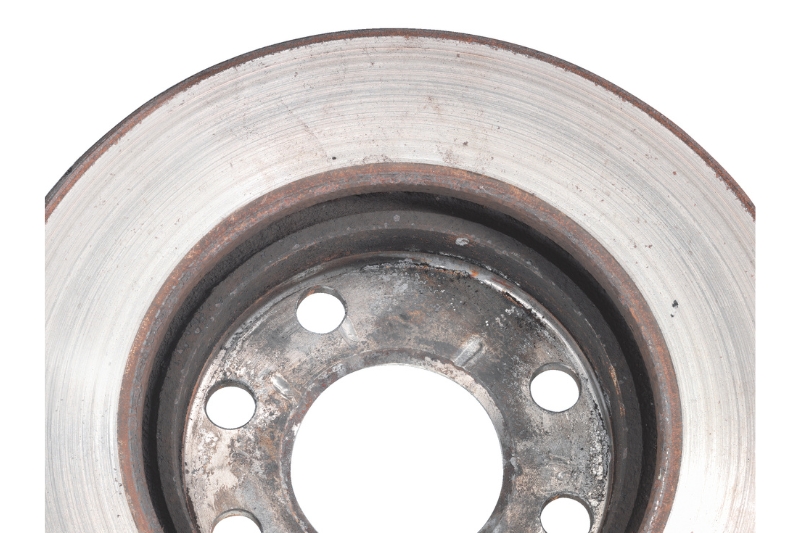
Indentations on the contact surface
Cause
- Improper cleaning of the contact surfaces
- Damage to the contact surfaces through contamination
- Distortion of the wheel hub
Effect
- Increased lateral run-out of the brake discs
- Chattering and rubbing effects
Recommendation
- Clean the contact surface of the brake disc and the wheel hub before mounting new brake discs
- Do not use paste lubricants (copper paste, etc.)
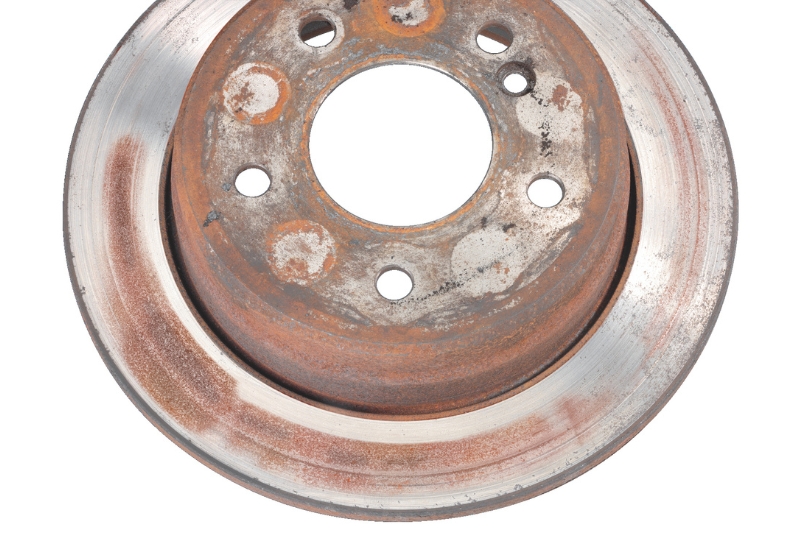
Corroded friction area
Cause
- Impact of corrosive substances (e.g. road salt, cleaning agents)
- Damage through water or lack of use – low demand on the brakes
Effect
- Noise during braking
- Irregular braking performance
Recommendation
- Replace brake discs and pads
- Instruct the customer to occasionally stress the brakes by applying pressure appropriately (bed in the brakes)

